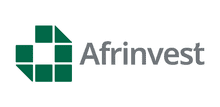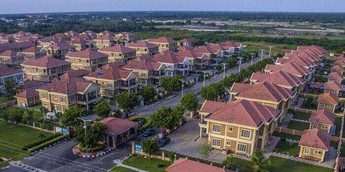In a bold move to address Nigeria’s economic challenges and unlock its vast potential, Afrinvest (West Africa) Limited, a leading investment and research firm, has unveiled an innovative economic roadmap titled Act Bold: A Blueprint to Push Nigeria Beyond a $1 Trillion Economy. The unveiling took place during the firm’s annual Afrinvest Banking and Economic Summit, a platform renowned for fostering dialogue on Nigeria’s economic future. The blueprint, a comprehensive and forward-thinking strategy, aims to chart a sustainable path for Nigeria to surpass the $1 trillion GDP mark, positioning the country as a global economic powerhouse.
The Act Bold blueprint is more than a mere economic proposal; it is a clarion call for transformative action, urging policymakers, private sector leaders, and citizens to embrace bold, innovative, and inclusive strategies to overcome Nigeria’s systemic challenges. With a population exceeding 200 million, abundant natural resources, and a youthful demographic, Nigeria has long been viewed as a nation brimming with potential. However, persistent issues such as infrastructure deficits, policy inconsistencies, and economic volatility have hindered its ability to achieve sustained growth. Afrinvest’s blueprint seeks to address these challenges head-on, offering a roadmap that combines data-driven insights, global best practices, and localized solutions to propel Nigeria into the league of trillion-dollar economies.
The Context: Nigeria’s Economic Landscape
Nigeria, often referred to as the “Giant of Africa,” is the continent’s largest economy by nominal GDP, with an estimated GDP of approximately $477 billion in 2022, according to the International Monetary Fund (IMF). Despite this, the country faces significant economic hurdles, including high inflation, unemployment, and a heavy reliance on oil exports, which account for over 80% of export revenues and approximately 50% of government revenue. The volatility of global oil prices, coupled with structural inefficiencies, has exposed Nigeria’s economy to external shocks, limiting its ability to achieve inclusive and sustainable growth.
Moreover, Nigeria’s per capita GDP remains low, standing at around $2,085 in 2022, a stark contrast to trillion-dollar economies like the United States ($70,248 per capita) or China ($12,556 per capita). The country’s economic challenges are compounded by a rapidly growing population, projected to reach 400 million by 2050, which places immense pressure on infrastructure, education, healthcare, and job creation. To achieve a $1 trillion economy, Nigeria must not only sustain high GDP growth rates but also address systemic issues such as poverty, inequality, and governance inefficiencies.
Afrinvest’s Act Bold blueprint comes at a critical juncture. Nigeria’s economic growth has been inconsistent, with real GDP growth averaging 2.1% annually between 2015 and 2022, far below the 7-8% needed to double the economy within a decade. The blueprint argues that Nigeria cannot afford to continue with business-as-usual policies. Instead, it calls for bold reforms, strategic investments, and a paradigm shift in how the country approaches economic development.
The Vision: A $1 Trillion Economy by 2050
The Act Bold blueprint sets an ambitious target: to transform Nigeria into a $1 trillion economy by 2050. This goal aligns with projections from global institutions like the United Nations and the African Development Bank, which suggest that Nigeria has the potential to achieve this milestone if it can sustain high growth rates and implement structural reforms. To put this in perspective, a $1 trillion economy would place Nigeria among the top 15 economies globally, alongside nations like Canada, South Korea, and Australia.
Achieving this target requires Nigeria to grow its GDP at a compound annual growth rate (CAGR) of approximately 8-10% over the next 25 years. This is a daunting but not impossible task, given Nigeria’s demographic advantages, natural resource wealth, and untapped potential in sectors like agriculture, technology, and manufacturing. The blueprint emphasizes that this transformation is not merely about increasing GDP but also about improving living standards, reducing poverty, and creating a diversified and resilient economy.
Key Pillars of the Act Bold Blueprint
The Act Bold blueprint is built on five key pillars, each addressing critical aspects of Nigeria’s economic ecosystem. These pillars are designed to tackle both immediate challenges and long-term structural issues, ensuring sustainable and inclusive growth. Below is a detailed exploration of each pillar, enriched with additional context and analysis.
1. Economic Diversification and Industrialization
Nigeria’s heavy reliance on oil has long been a double-edged sword. While oil exports have fueled economic growth, they have also made the country vulnerable to global price fluctuations. The Act Bold blueprint advocates for aggressive diversification to reduce Nigeria’s dependence on oil and gas. It calls for significant investments in non-oil sectors such as agriculture, manufacturing, and technology, which have the potential to create millions of jobs and drive export-led growth.
Agriculture, for instance, remains a cornerstone of Nigeria’s economy, employing over 35% of the workforce. Yet, the sector is plagued by low productivity, outdated farming techniques, and limited access to financing. The blueprint proposes modernizing agriculture through mechanization, improved seed varieties, and access to credit for smallholder farmers. It also emphasizes agro-processing to add value to raw agricultural products, thereby boosting export revenues and creating jobs.
Similarly, the manufacturing sector, which currently contributes less than 10% to GDP, is seen as a critical driver of industrialization. The blueprint recommends policies to promote local production, including tax incentives, access to affordable credit, and the development of industrial parks. By fostering a robust manufacturing base, Nigeria can reduce its reliance on imported goods, strengthen its trade balance, and create a multiplier effect across the economy.
The technology sector, often dubbed the “new oil,” is another focal point. Nigeria’s tech ecosystem has seen remarkable growth, with startups like Flutterwave and Paystack achieving unicorn status. The blueprint calls for scaling this ecosystem through investments in digital infrastructure, tech education, and supportive regulatory frameworks. By positioning Nigeria as a tech hub for Africa, the country can attract foreign direct investment (FDI) and create high-value jobs for its youthful population.
2. Infrastructure Development
Infrastructure deficits remain one of Nigeria’s most pressing challenges. Poor road networks, unreliable electricity, and inadequate port facilities hamper economic productivity and deter investment. The Act Bold blueprint proposes a massive infrastructure push, with a focus on public-private partnerships (PPPs) to bridge the funding gap. It estimates that Nigeria needs to invest at least $100 billion annually in infrastructure over the next decade to close the gap and support a $1 trillion economy.
Key priorities include expanding access to reliable electricity, which is critical for industrialization and economic growth. Nigeria’s current power generation capacity of approximately 5,000 megawatts is woefully inadequate for a population of over 200 million. The blueprint advocates for investments in renewable energy, such as solar and wind, to complement traditional power sources. It also calls for upgrading the national grid and decentralizing power distribution to improve reliability.
Transportation infrastructure is another critical area. The blueprint emphasizes the need for modernized road networks, rail systems, and port facilities to facilitate trade and reduce logistics costs. For example, the ongoing Lagos-Ibadan railway project is cited as a model that should be replicated across the country. By improving connectivity, Nigeria can unlock the economic potential of its hinterlands and integrate rural areas into the national economy.
3. Human Capital Development
A $1 trillion economy requires a skilled and healthy workforce. Nigeria’s youthful population, with a median age of 18, is a demographic dividend that must be harnessed through investments in education, healthcare, and skills development. The Act Bold blueprint underscores the need for a radical overhaul of Nigeria’s education system to align with the demands of a modern economy.
Currently, Nigeria faces a learning crisis, with over 10 million children out of school and low literacy rates in some regions. The blueprint proposes increasing education funding to at least 10% of the national budget, in line with UNESCO recommendations. It also advocates for curriculum reforms to emphasize science, technology, engineering, and mathematics (STEM) education, as well as vocational training to prepare young Nigerians for the job market.
Healthcare is another critical component. With a life expectancy of 54 years and high rates of maternal and child mortality, Nigeria’s healthcare system is in dire need of reform. The blueprint calls for expanding access to primary healthcare, improving hospital infrastructure, and incentivizing private sector participation in healthcare delivery. A healthy population is more productive, and investments in healthcare will yield long-term economic dividends.
4. Governance and Institutional Reforms
Weak governance and institutional inefficiencies have long hindered Nigeria’s economic progress. Corruption, bureaucratic red tape, and policy inconsistencies deter investment and undermine public trust. The Act Bold blueprint emphasizes the need for transparent and accountable governance to create an enabling environment for economic growth.
Key recommendations include strengthening anti-corruption agencies, digitizing public services to reduce opportunities for graft, and improving the ease of doing business. Nigeria currently ranks 131 out of 190 countries on the World Bank’s Doing Business Index, a reflection of its challenging business environment. The blueprint proposes streamlining regulatory processes, reducing the cost of starting a business, and ensuring policy stability to attract both domestic and foreign investors.
Judicial reforms are also critical. A robust legal system is essential for enforcing contracts, protecting property rights, and resolving disputes. The blueprint calls for modernizing Nigeria’s judiciary, including the adoption of technology to expedite case resolution and reduce backlog.
5. Financial Inclusion and Capital Market Development
Access to finance is a major barrier for businesses and individuals in Nigeria. With over 40% of the population unbanked, financial inclusion is a prerequisite for inclusive growth. The Act Bold blueprint advocates for expanding access to affordable credit, particularly for small and medium-sized enterprises (SMEs), which account for over 80% of employment in Nigeria.
The blueprint also emphasizes the role of Nigeria’s capital markets in mobilizing resources for economic growth. By deepening the capital markets, Nigeria can attract long-term investments to finance infrastructure, industrialization, and innovation. This includes promoting listings on the Nigerian Exchange (NGX), developing new financial instruments, and encouraging pension funds and other institutional investors to channel resources into productive sectors.
Implementation Challenges and Solutions
While the Act Bold blueprint is ambitious, its implementation faces significant challenges. Nigeria’s history of policy reversals and lack of continuity in government programs could undermine the blueprint’s success. To address this, Afrinvest recommends the establishment of a dedicated task force to oversee implementation, comprising representatives from government, the private sector, and civil society. This task force would ensure accountability, monitor progress, and adapt the blueprint to changing economic realities.
Financing the blueprint is another hurdle. Nigeria’s fiscal constraints, with a debt-to-GDP ratio of over 40%, limit the government’s ability to fund large-scale initiatives. The blueprint proposes innovative financing mechanisms, such as diaspora bonds, green bonds, and public-private partnerships, to mobilize resources. It also calls for improving revenue generation through tax reforms and reducing leakages from corruption and inefficiencies.
Public buy-in is critical for the blueprint’s success. Afrinvest emphasizes the need for widespread stakeholder engagement to ensure that the blueprint reflects the aspirations of Nigerians. This includes consulting with youth groups, women’s organizations, and rural communities to ensure that the benefits of a $1 trillion economy are equitably distributed.
The Role of the Private Sector
The private sector is a key partner in realizing the Act Bold blueprint. Nigerian businesses, from startups to conglomerates, have the expertise, innovation, and resources to drive economic transformation. The blueprint encourages private sector investment in critical sectors like agriculture, manufacturing, and technology, while advocating for policies that create a level playing field for businesses to thrive.
Afrinvest itself is leading by example. As a financial services firm with over two decades of experience, Afrinvest has a track record of supporting Nigeria’s economic development through investment advisory, asset management, and research. The firm’s annual summit serves as a platform for fostering collaboration between the public and private sectors, and the Act Bold blueprint builds on this legacy by providing a clear roadmap for collective action.
Global Context and Lessons from Other Economies
Nigeria is not the first country to aim for a $1 trillion economy, and the Act Bold blueprint draws inspiration from global success stories. Countries like South Korea, Singapore, and China have transformed their economies through deliberate policies, strategic investments, and strong leadership. South Korea, for example, transitioned from one of the world’s poorest nations in the 1960s to a $1.8 trillion economy today through investments in education, technology, and export-led industrialization.
The blueprint also acknowledges the importance of regional integration. As a member of the African Continental Free Trade Area (AfCFTA), Nigeria has an opportunity to leverage a market of 1.3 billion people to boost trade and investment. The blueprint recommends strengthening Nigeria’s position within AfCFTA by improving trade infrastructure, harmonizing regulations, and promoting intra-African trade.
The Path Forward
The unveiling of the Act Bold blueprint marks a pivotal moment in Nigeria’s economic journey. While the $1 trillion target is ambitious, it is achievable with the right mix of policies, investments, and political will. The blueprint serves as both a roadmap and a call to action, urging all stakeholders—government, private sector, civil society, and citizens—to work together to unlock Nigeria’s potential.
As Nigeria looks to the future, the Act Bold blueprint offers a vision of hope and possibility. It envisions a Nigeria where every citizen has access to opportunities, where businesses thrive in a supportive environment, and where the country takes its rightful place among the world’s leading economies. By embracing bold reforms and collective action, Nigeria can move beyond its challenges and build a prosperous, inclusive, and sustainable future.







